Correspondence 19491975
New Heidegger Research
Series editors:
Gregory Fried, Professor of Philosophy, Suffolk University, USA Richard Polt, Professor of Philosophy, Xavier University, USA
The New Heidegger Research series promotes informed and critical dialogue that breaks new philosophical ground by taking into account the full range of Heideggers thought, as well as the enduring questions raised by his work.
Titles in the Series:
Making Sense of Heidegger , Thomas Sheehan
Heidegger and the Environment , Casey Rentmeester
Correspondence 19491975 , Martin Heidegger and Ernst Jnger, translated by Timothy Sean Quinn
After the Greeks , Laurence Paul Hemming (forthcoming)
Heidegger in Russia and Eastern Europe edited by Jeff Love (forthcoming)
Dwelling in Speech: Proto-Phenomenology and the Nature of Language , Lawrence J. Hatab (forthcoming)
The Question Concerning the Thing: On Kants Doctrine of the Transcendental Principles , Martin Heidegger, translated by Benjamin D. Crowe and James D. Reid. (forthcoming)
Published by Rowman & Littlefield International Ltd
Unit A, Whitacre Mews, 2634 Stannary Street, London SE11 4AB
www.rowmaninternational.com
Rowman & Littlefield International Ltd.is an affiliate of Rowman & Littlefield
4501 Forbes Boulevard, Suite 200, Lanham, Maryland 20706, USA
With additional offices in Boulder, New York, Toronto (Canada), and Plymouth (UK)
www.rowman.com
For the letters by Ernst Jnger and ber die Linie J.G. Cottasche Buchhandlung Nachfolger GmbH, Stuttgart 1950, 2008
For the letters by Martin Heidegger Vittorio Klostermann GmbH, Frankfurt am Main, 2008
For the letters by Hermann Heidegger: Herman Heidegger, Stegen
Copyright in the English-language translation of the text 2016 Rowman & Littlefield International
All rights reserved . No part of this book may be reproduced in any form or by any electronic or mechanical means, including information storage and retrieval systems, without written permission from the publisher, except by a reviewer who may quote passages in a review.
British Library Cataloguing in Publication Data
A catalogue record for this book is available from the British Library
ISBN: HB 978-1-7834-8875-9
PB 978-1-7834-8876-6
Library of Congress Cataloging-in-Publication Data
Names: Heidegger, Martin, 18891976, author. | Quinn, Timothy Sean, translator. | Junger, Ernst, 18951998. Uber die Linie. English.
Title: Correspondence, 19491975 / Martin Heidegger and Ernst Junger; translated by Timothy Sean Quinn.
Description: New York : Rowman & Littlefield International, 2016. | Series: New Heidegger research | Description based on print version record and CIP data provided by publisher; resource not viewed.
Identifiers: LCCN 2016018572 (print) | LCCN 2016014247 (ebook) | ISBN 9781783488773 (electronic) | ISBN 9781783488759 (cloth : alk. paper) | ISBN 9781783488766 (pbk. : alk. paper)
Subjects: LCSH: Junger, Ernst, 18951998Correspondence. | Authors, German20th centuryCorrespondence. | Philosophers, GermanCorrespondence.
Classification: LCC PT2619.U43 (print) | LCC PT2619.U43 Z48 2016 (ebook) | DDC 838/.91209dc23
LC record available at https://lccn.loc.gov/2016018572
 The paper used in this publication meets the minimum requirements of American National Standard for Information SciencesPermanence of Paper for Printed Library Materials, ANSI/NISO Z39.48-1992.
The paper used in this publication meets the minimum requirements of American National Standard for Information SciencesPermanence of Paper for Printed Library Materials, ANSI/NISO Z39.48-1992.
Printed in the United States of America
To My Family
Kathryn, Ben, Rachel, Mire
Acknowledgements
I owe a sincere debt of gratitude to Gregory Fried and Richard Polt for encouraging this project, and especially to Richard Polt for his thoughtful criticisms and suggestions for improvement of my translation. I owe thanks as well to Sarah Campbell of Rowman & Littlefield International, as well as to Sinad Murphy, for their efforts shepherding this book to completion. But for the steady assistance and good advice of all of them, this book would not exist.
Translators Introduction
Beginning in the early 1930s, Martin Heidegger began what would become a life-long engagement with the work of Ernst Jnger, but the two would not formally meet until 1948, at Heideggers celebrated hut in Todtnauberg. One year later, Jnger inaugurated a regular correspondence with Heidegger that lasted until Heideggers death in 1976. This volume is a translation of that correspondence; it also includes a translation of an essay Jnger composed on the occasion of Heideggers sixtieth birthday, ber die Linie (Across the Line).
Unlike Heidegger, Ernst Jnger is relatively unknown to English-speaking readers. Yet at the time their correspondence began, Jnger had already established himself in Europe as a preeminent novelist and essayist. His first book, In Stahlgewittern ( Storm of Steel, 1920), was a record of his experiences in the cauldron of World War I . During the 1920s and 1930s, Jnger would publish ten more volumes, offering further reflections on war, but also critiquing the failure of liberal democracy to resist modernitys drift into various forms of totalitarianism. From this period comes the work that first drew Heideggers attention, Der Arbeiter ( The Worker , 1932). Along with his celebrated military record, Jngers literary reputation also drew the attention of the National Socialist Party, which continued for a decade to attempt to recruit Jnger to its ranks. Although Jnger was a political conservative linked with other nationalist writers, he not only refused the Nazis solicitations; he published a short and highly allegorical novel, Auf den Marmorklippen ( On the Marble Cliffs , 1939), critical of Hitlers Germany. Nonetheless, during World War II, Jnger served in Paris in an administrative position with the German Army; his reflections on this time are recorded in his book Grten und Straen ( Gardens and Paths , 1942). As a German officer associated with conservative politics, but at the same time opposed to the Nazi Party, Jnger found himself on the periphery of the plot led by Claus von Stauffenberg to assassinate Hitler. Nevertheless, he was not directly implicated, suffering only dismissal from the army. After the war, Jnger continued his prolific career, authoring over forty more books before his death in 1998.
According to Heidegger, an admiring but critical study of two of Jngers writings, the essay Total Mobilization of 1930 and the book The Worker of 1932, framed that most controversial decade of his career. What impressed Heidegger in these works was how they express an essential understanding of Nietzsches metaphysics, insofar as the history and the present of the Western world are seen and foreseen within the horizon of this metaphysics. From Jnger, Heidegger learned the universal rule of the will to power within planetary history. Today everything is a part of this reality, whether it is called communism, or fascism, or world democracy.
At the same time, however, Heidegger was critical of Jnger. Concerning what he called Jngers bedazzlement ( Blendung ) and blindness ( Verblendung ) before the thought of Nietzsche, Heidegger judges that Jnger fails to see the essence and ground of the contemporary subjectivity of humanity and therewith the authentic sphere of decision... between Being and beings.
In 1949, Jnger inaugurated what would become a regular correspondence with Heidegger to solicit Heideggers interest in the possibilities of founding a new journal titled Pallas . As the correspondence reveals, though, Heidegger chose to retreat from public involvements, in so far as that was possible for him to manage, and in general remained somewhat dismissive of politics.



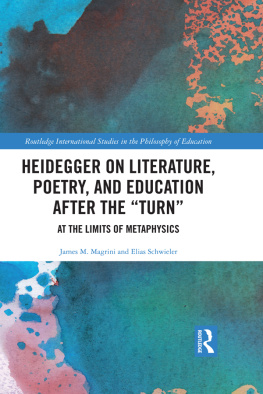
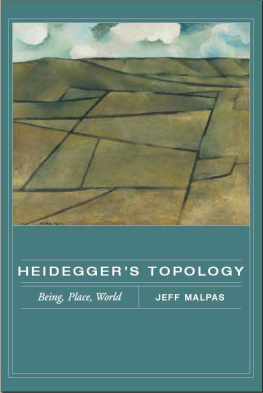
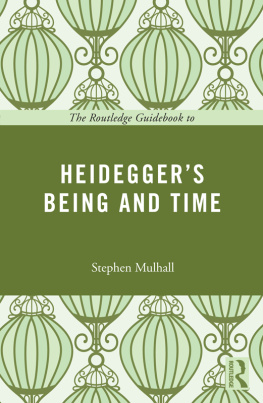
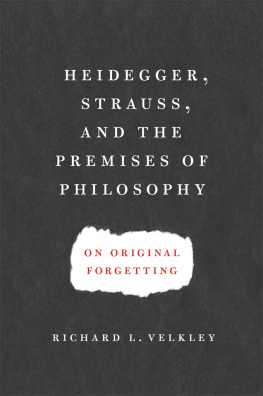
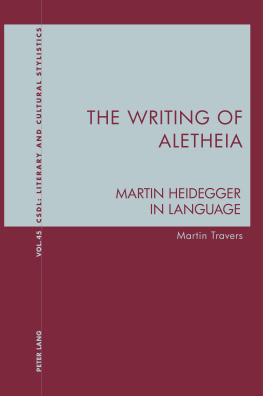
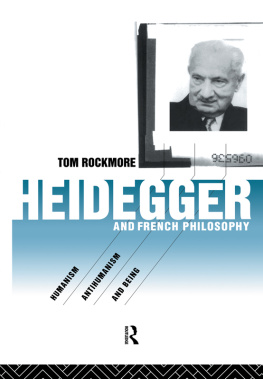
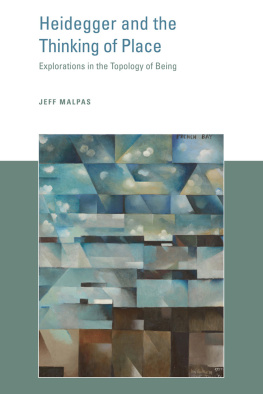
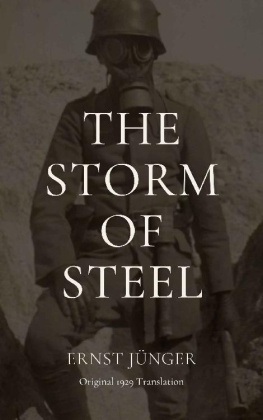
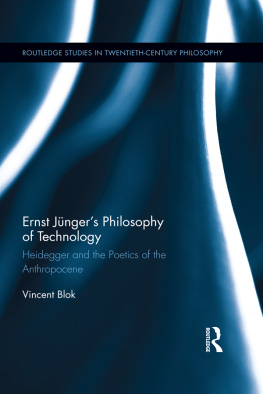
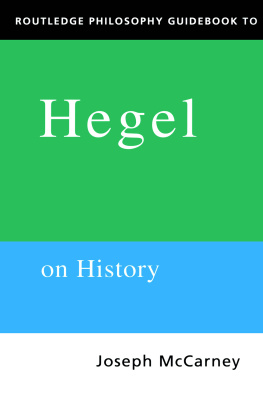
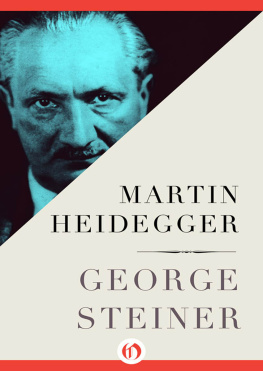

 The paper used in this publication meets the minimum requirements of American National Standard for Information SciencesPermanence of Paper for Printed Library Materials, ANSI/NISO Z39.48-1992.
The paper used in this publication meets the minimum requirements of American National Standard for Information SciencesPermanence of Paper for Printed Library Materials, ANSI/NISO Z39.48-1992.